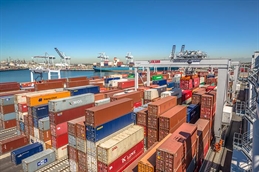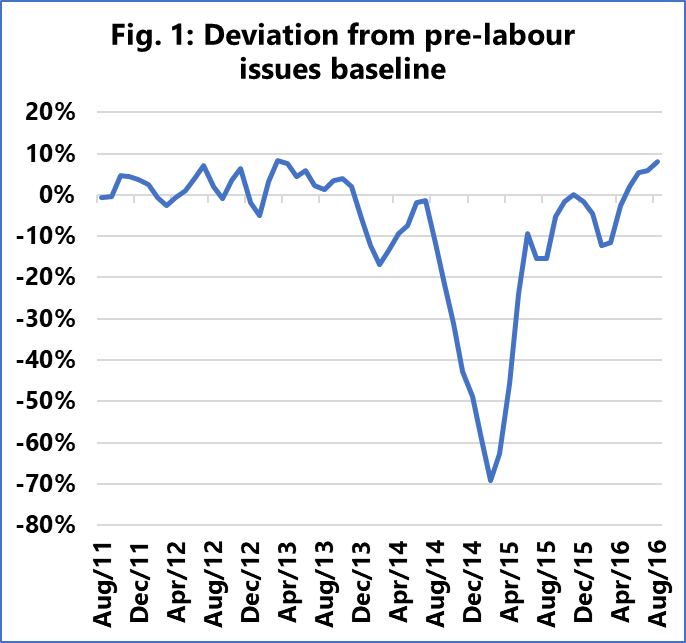
It could take 8-9 months to see container line schedule reliability recover, according to the latest report by Sea-Intelligence.
In a statement, the maritime analyst said the system is "so far out of balance" that there is no historical precedent fully describing this situation.
Nonetheless, the US West Coast labour dispute of early 2015, which led to major delays and bottlenecks could be used to create a realistic baseline.
Sea-Intelligence said August 2011 to July 2014 would be the "pre-labour dispute" period while the peak impact of the labour dispute was felt in February 2015, with reliability 70 percentage points below the baseline.
It added that following the resolution of the dispute on February 20 that year, it took "8-9 months for reliability to get back to the baseline."

"Currently, schedule reliability on Asia-NAWC is just 10.1%, which is not markedly different from the 12.6% recorded in February 2015, suggesting a return to pre-pandemic normality would also be 8-9 months,"
Alan Murphy, CEO Sea-Intelligence said.
Vessel delays "much worse"
He added that vessel delays are much worse now (15.07 days) than in 2015 (11.88 days) during the said dispute.
"Compared to a pre-pandemic baseline of 2017-2019, the excess delay in December 2021 versus the pre-pandemic baseline was 11.54 days, versus 8.73 days in February 2015 compared to the pre-labour dispute baseline," the Sea-Intel report said.
Meanwhile, Sea-Intelligence said even though supply chain problems continue to plague the industry, it appears that Covid is now entering an endemic phase, rather than a pandemic.




